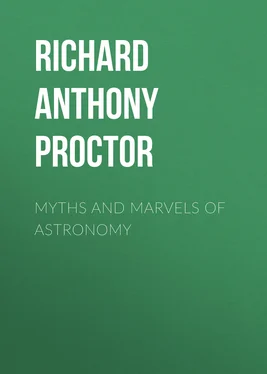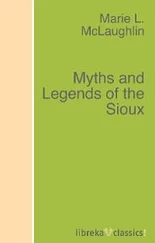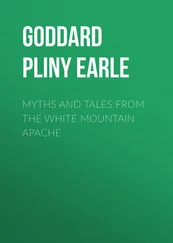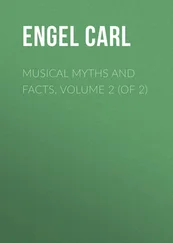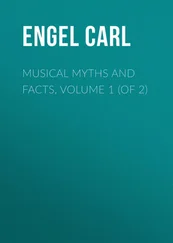Richard A. Proctor - Myths and Marvels of Astronomy
Здесь есть возможность читать онлайн «Richard A. Proctor - Myths and Marvels of Astronomy» — ознакомительный отрывок электронной книги совершенно бесплатно, а после прочтения отрывка купить полную версию. В некоторых случаях можно слушать аудио, скачать через торрент в формате fb2 и присутствует краткое содержание. Жанр: foreign_edu, Физика, на английском языке. Описание произведения, (предисловие) а так же отзывы посетителей доступны на портале библиотеки ЛибКат.
- Название:Myths and Marvels of Astronomy
- Автор:
- Жанр:
- Год:неизвестен
- ISBN:нет данных
- Рейтинг книги:5 / 5. Голосов: 1
-
Избранное:Добавить в избранное
- Отзывы:
-
Ваша оценка:
- 100
- 1
- 2
- 3
- 4
- 5
Myths and Marvels of Astronomy: краткое содержание, описание и аннотация
Предлагаем к чтению аннотацию, описание, краткое содержание или предисловие (зависит от того, что написал сам автор книги «Myths and Marvels of Astronomy»). Если вы не нашли необходимую информацию о книге — напишите в комментариях, мы постараемся отыскать её.
Myths and Marvels of Astronomy — читать онлайн ознакомительный отрывок
Ниже представлен текст книги, разбитый по страницам. Система сохранения места последней прочитанной страницы, позволяет с удобством читать онлайн бесплатно книгу «Myths and Marvels of Astronomy», без необходимости каждый раз заново искать на чём Вы остановились. Поставьте закладку, и сможете в любой момент перейти на страницу, на которой закончили чтение.
Интервал:
Закладка:
It is, however, to be noted that we have no means of learning what had happened between the time when the pyramid was built and when Caliph Al Mamoun's workmen broke their way into the King's Chamber. The place may, after all, have contained treasures of some kind; nor, indeed, is it incompatible with other theories of the pyramid to suppose that it was used as a safe receptacle for treasures. It is certain, however, that this cannot have been the special purpose for which the pyramids were designed. We should find in such a purpose no explanation whatever of any of the most stringent difficulties encountered in dealing with other theories. There could be no reason why strangers from the East should be at special pains to instruct an Egyptian monarch how to hide and guard his treasures. Nor, if the Great Pyramid had been intended to receive the treasures of Cheops, would Chephren have built another for his own treasures, which must have included those gathered by Cheops. But, apart from this, how inconceivably vast must a treasure-hoard be supposed to be, the safe guarding of which would have repaid the enormous cost of the great Pyramid in labour and material! And then, why should a mere treasure-house have the characteristics of an astronomical observatory? Manifestly, if the pyramids were used at all to receive treasures, it can only have been as an entirely subordinate though perhaps convenient means of utilising these gigantic structures.
Having thus gone through all the suggested purposes of the pyramids save two or three which clearly do not possess any claim to serious consideration, and having found none which appear to give any sufficient account of the history and principal features of these buildings, we must either abandon the inquiry or seek for some explanation quite different from any yet suggested. Let us consider what are the principal points of which the true theory of the pyramids should give an account.
In the first place, the history of the pyramids shows that the erection of the first great pyramid was in all probability either suggested to Cheops by wise men who visited Egypt from the East, or else some important information conveyed to him by such visitors caused him to conceive the idea of building the pyramid. In either case we may suppose, as the history indeed suggests, that these learned men, whoever they may have been, remained in Egypt to superintend the erection of the structure. It may be that the architectural work was not under their supervision; in fact, it seems altogether unlikely that shepherd-rulers would have much to teach the Egyptians in the matter of architecture. But the astronomical peculiarities which form so significant a feature of the Great Pyramid were probably provided for entirely under the instructions of the shepherd chiefs who had exerted so strange an influence upon the mind of King Cheops.
Next, it seems clear that self-interest must have been the predominant reason in the mind of the Egyptian king for undertaking this stupendous work. It is true that his change of religion implies that some higher cause influenced him. But a ruler who could inflict such grievous burdens on his people in carrying out his purpose that for ages afterwards his name was held in utter detestation, cannot have been solely or even chiefly influenced by religious motives. It affords an ample explanation of the behaviour of Cheops, in closing the temples and forsaking the religion of his country, to suppose that the advantages which he hoped to secure by building the pyramid depended in some way on his adopting this course. The visitors from the East may have refused to give their assistance on any other terms, or may have assured him that the expected benefit could not be obtained if the pyramid were erected by idolaters. It is certain, in any case, that they were opposed to idolatry; and we have thus some means of inferring who they were and whence they came. We know that one particular branch of one particular race in the East was characterised by a most marked hatred of idolatry in all its forms. Terah and his family, or, probably, a sect or division of the Chaldæan people, went forth from Ur of the Chaldees, to go into the land of Canaan—and the reason why they went forth we learn from a book of considerable historical interest (the book of Judith) to have been because 'they would not worship the gods of their fathers who were in the land of the Chaldæans.' The Bible record shows that members of this branch of the Chaldæan people visited Egypt from time to time. They were shepherds, too, which accords well with the account of Herodotus above quoted. We can well understand that persons of this family would have resisted all endeavours to secure their acquiescence in any scheme associated with idolatrous rites. Neither promises nor threats would have had much influence on them. It was a distinguished member of the family, the patriarch Abraham, who said: 'I have lift up mine hand unto the Lord, the most high God, the possessor of heaven and earth, that I will not take from a thread even to a shoe-latchet, and that I will not take anything that is thine, lest thou shouldest say, I have made Abram rich.' Vain would all the promises and all the threats of Cheops have been to men of this spirit. Such men might help him in his plans, suggested, as the history shows, by teachings of their own, but it must be on their own conditions, and those conditions would most certainly include the utter rejection of idolatrous worship by the king in whose behalf they worked, as well as by all who shared in their labours. It seems probable that they convinced both Cheops and Chephren, that unless these kings gave up idolatry, the purpose, whatever it was, which the pyramid was erected to promote, would not be fulfilled. The mere fact that the Great Pyramid was built either directly at the suggestion of these visitors, or because they had persuaded Cheops of the truth of some important doctrine, shows that they must have gained great influence over his mind. Rather we may say that he must have been so convinced of their knowledge and power as to have accepted with unquestioning confidence all that they told him respecting the particular subject over which they seemed to possess so perfect a mastery.
But having formed the opinion, on grounds sufficiently assured, that the strangers who visited Egypt and superintended the building of the Great Pyramid were kinsmen of the patriarch Abraham, it is not very difficult to decide what was the subject respecting which they had such exact information. They or their parents had come from the land of the Chaldæans, and they were doubtless learned in all the wisdom of their Chaldæan kinsmen. They were masters, in fact, of the astronomy of their day, a science for which the Chaldæans had shown from the earliest ages the most remarkable aptitude. What the actual extent of their astronomical knowledge may have been it would be difficult to say. But it is certain, from the exact knowledge which later Chaldæans possessed respecting long astronomical cycles, that astronomical observations must have been carried on continuously by that people for many hundreds of years. It is highly probable that the astronomical knowledge of the Chaldæans in the days of Terah and Abraham was much more accurate than that possessed by the Greeks even after the time of Hipparchus. 24We see indeed, in the accurate astronomical adjustment of the Great Pyramid, that the architects must have been skilful astronomers and mathematicians; and I may note here, in passing, how strongly this circumstance confirms the opinion that the visitors were kinsmen of Terah and Abraham. All we know from Herodotus and Manetho, all the evidence from the circumstances connected with the religion of the pyramid-kings, and the astronomical evidence given by the pyramids themselves, tends to assure us that members of that particular branch of the Chaldæan family which went out from Ur of the Chaldees because they would not worship the gods of the Chaldæans, extended their wanderings to Egypt, and eventually superintended the erection of the Great Pyramid so far as astronomical and mathematical relations were concerned.
Читать дальшеИнтервал:
Закладка:
Похожие книги на «Myths and Marvels of Astronomy»
Представляем Вашему вниманию похожие книги на «Myths and Marvels of Astronomy» списком для выбора. Мы отобрали схожую по названию и смыслу литературу в надежде предоставить читателям больше вариантов отыскать новые, интересные, ещё непрочитанные произведения.
Обсуждение, отзывы о книге «Myths and Marvels of Astronomy» и просто собственные мнения читателей. Оставьте ваши комментарии, напишите, что Вы думаете о произведении, его смысле или главных героях. Укажите что конкретно понравилось, а что нет, и почему Вы так считаете.
